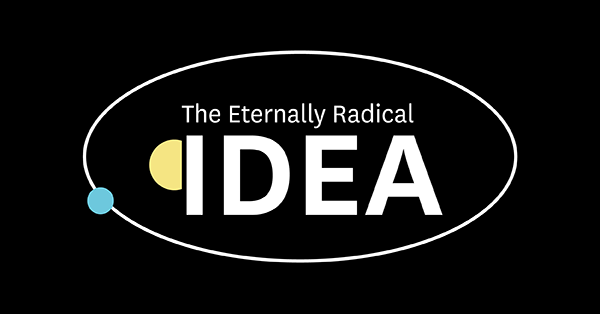E-Pluribus | June 8, 2022
A game with no winners, China's COVID authoritarianism is showing its weakness, and the rise of managerial wokeness.
A round-up of the latest and best writing and musings on the rise of illiberalism in the public discourse:
Jane Coaston: When Every Conversation Becomes a Game, We All Lose
Jane Coaston of the New York Times calls upon her academic experiences to characterize today’s public discourse in her latest newsletter. Coaston says if we view every conversation and disagreement as needing a winner and a loser, we all end up losing.
When I was in high school in Ohio, I competed on the academic team. Your school may have called it Quiz Bowl or Academic Decathlon, but the basic concept was the same: teams from different high schools going head-to-head in a contest of knowledge.
[ . . . ]
[I]f you’ve spent a lot of time online or tried to talk about politics with someone you’ve just met, you probably have witnessed a different kind of relationship to knowledge. I call it debate team energy, the irritating cousin of academic team energy, in which the point of the discussion isn’t a craving for information but a lust for victory. It’s an irrepressible need to achieve some sort of win in a conversation with someone who will inevitably regret participating in it.
Debate team energy is characterized by loudness and fast talking. And even if you think you know quite a bit about a given topic, a person hopped up on debate team energy, now your opponent, seems dismissive of your ideas and convinced that a conversation about the best ways to combat climate change or stop mass shootings is actually a battle in which the aim is to destroy you.
[ . . . ]
Debate team energy is abundant in our culture. It fuels the way that some media outlets cover politics; everything is up for debate. It floods basically any conversation people attempt to have on Twitter. And it is at play in so many of our discussions these days, as we regard those with opposing views as losers and jerks.
This is, of course, bad for us. You know the conversation you start at a party that, by the end of it, leaves you hating both the person you’re talking to and yourself for playing a part in it? That’s debate team energy at work. A disagreement is too often a wish to destroy.
But more important, debate team energy separates us from the importance of the subject matter being debated, even if it’s the lives and experiences of real people.
Read the whole thing.
Robert Tracinski: China’s Ongoing COVID Disaster Exposes the Failure of Authoritarianism
If authoritarians look anywhere for inspiration, the Chinese Communist Party’s decades of rule over more than a billion people must get more than a passing glance. Robert Tracinski at Discourse Magazine says China’s experience with COVID should give budding authoritarians pause as the CCP’s failures mount.
China has been failing in its response to COVID since the very beginning. The disease’s spread in its first few months is a classic tale of “authoritarian blindness.” The Chinese regime is obsessed with surveillance of its citizens, not so it can find information, but so it can suppress it. This is exactly what they did in the early days of the pandemic, when doctors warning about a new virus were punished for spreading “rumors.”
[ . . . ]
All of this threatens the implicit social contract of the Communist regime in China: that the government will deliver capitalist prosperity and the good life in exchange for political quiescence. That was especially true in Shanghai, a vast cosmopolitan city where for many the good life has been very good.
Now the slogan emerging from Shanghai is the response given by a couple to an official who warned them that if they didn’t comply with lockdown rules, their punishment would last for three generations: “We’re the last generation.” This has become a rallying cry of protest[.]
[ . . . ]
The regime’s draconian policy is not even working. According to an article in Foreign Affairs, lockdowns intended to keep COVID cases from overwhelming health care systems have themselves overwhelmed the system, and mass testing efforts undermined the forced isolation.
Read it all here.
Malcom Kyeyune: Wokeness, the Highest Stage of Managerialism
“Woke capital” is all the rage these days, and at City Journal, Malcom Kyeyune gets into the nitty-gritty of how this plays out. Kyeyune writes that rather than top-down dictatorial control, much of the woke agenda is implemented by managers with ever-increasing layers of bureaucracy that burden both employees and the companies themselves.
The main practical demand that wokeness places on society is a massive expansion of managerial intermediation in previously independent social and economic processes. With Activision Blizzard, a controversy regarding the workplace environment quickly metastasized into a struggle to implement new, alternative human-resources structures that corporate leadership would not control, and to which it would have to pay, in effect, a kind of ideological protection money. In real terms, this represents a nontrivial abrogation of property rights: you may still own your company, but don’t expect to be free to run it as you see fit without the “help” of outside commissars.
[ . . . ]
Seen in this light, wokeness is not a mere scholastic ideology. Indeed, the woke tend to be uninterested in any form of Socratic dialogue regarding their suppositions. In 2017, the feminist philosophy journal Hypatia descended into massive controversy after a writer, Rebecca Tuvel, published an argument that transracialism ought to enjoy the same sort of philosophical status as transgenderism. Tuvel appeared to make her argument sincerely, in an effort to explore the philosophical implications of people who transcend social categories, but the effort rendered her a pariah.
If woke ideology has little use for academic discussions, it is quite adept at asserting control over institutions. One cannot separate woke controversies from struggles over hiring and firing privileges inside institutions. What appears to be a fight over principles is simultaneously a fight over institutional prerogatives and access to resources.
Like the managerial ideology that Burnham anticipated, wokeness both asserts a wide variety of rights that supersede ownership and insists upon the creation of a permanent caste of managers to monitor the implementation of these rights. This tendency toward intermediation now extends to almost every facet of modern society, including in areas previously seen as foundational to the political system. Democracy, for instance, is now seen as needing various forms of intermediation so as to function properly.
Read it all.
Around Twitter
In conjunction with FIRE’s transition from the Foundation for Individual Rights in Education to the Foundation for Individual Rights and Expression, the group’s CEO Greg Lukianoff shares some of FIRE’s foundational beliefs (click for the whole thread)":







Jonathan Chait of New York Magazine, no conservative, says Georgetown Law blew it on its treatment of Ilya Shapiro:
Finally, an open question from Conor Friedersdorf: practically speaking, are college DEI administrators untouchable?











